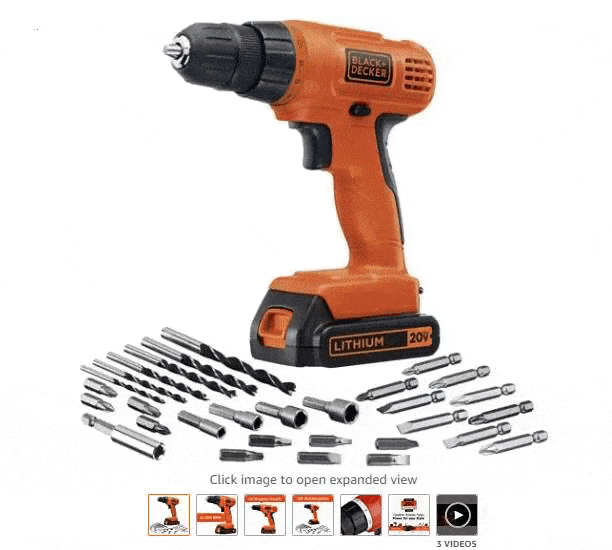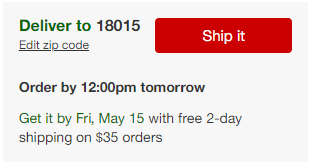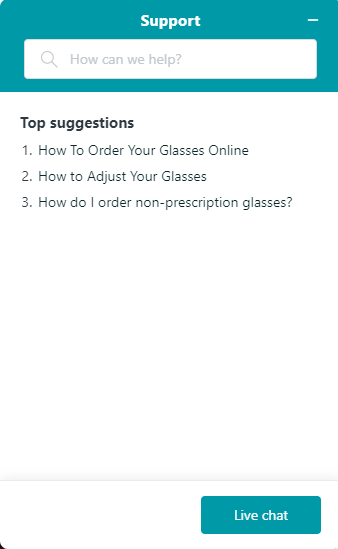-
 8 min. read
8 min. read
-
 Macy Storm
Macy Storm Content Marketing Consultant
Content Marketing Consultant
- Macy is a content marketing consultant with over five years of experience creating content for dozens of industries including home services, recreation, and education. She’s written about every marketing topic under the sun, from SEO to AI to email marketing. Her work has been featured by Search Engine Journal, HubSpot, Entrepreneur, Clutch, and more. In her free time, Macy enjoys crafting, reading comic books, and walking her dog Daisy.
If you have a brick-and-mortar business, you may be wondering if you should expand your business to the online world. If you’re knee-deep in the ecommerce vs. retail debate, we’re here to help you work through it. On this page, we’ll cover:
- The difference between retail and ecommerce
- How the shopping experience differs in retail vs. ecommerce
- Whether you should expand your business online
- How you can build your ecommerce presence online
Keep reading to get all the juicy details you need about building your business online! For more helpful tips and tricks for expanding your business online, subscribe to Revenue Weekly!
Ecommerce vs. retail sales: What’s the difference?
When comparing ecommerce vs. retail, you want to know how these two differ. Both mediums involve selling a product from a business to an individual. The difference is slight:
- Retail is the sale of products in stores, person-to-person, or through direct mail.
- Ecommerce is the sale of products solely through the Internet.
Many businesses are ecommerce and retail businesses. Companies like Target, Walmart, and Old Navy have brick-and-mortar stores, but also let customers purchase their products online.
Ecommerce vs. retail: The shopping experience
When looking at retail vs. ecommerce, you must understand the difference in the shopping experience. Ecommerce offers a different shopping experience than visiting a brick-and-mortar location, so we’ll go through some major differences between ecommerce and retail businesses.
Product interaction
Retail: Can physically interact with a product
Ecommerce: Rely on images and videos to learn about a product
The first aspect we’ll look at with ecommerce vs. retail is product interaction. When it comes to shopping in a brick-and-mortar store, people can physically interact with a product to determine if it fits what they need. It makes it easier for them to make purchasing decisions.
With ecommerce stores, product interaction is challenging since people can’t physically touch the product. With high-quality images, videos, and interactive features, like 360-degree views and virtual try-ons, you can make it easy for your audience to get a fully interactive product experience. 
Obtaining products
Retail: Can obtain products immediately
Ecommerce: Takes time for the product to arrive
When it comes to ecommerce vs. retail sales, it’s essential to look at how customers obtain products. With brick-and-mortar stores, customers can obtain products immediately. All they must do is walk in the store, find the product, and purchase it.
It allows for instant gratification and for people to get what they need immediately. As for ecommerce, it takes time for a product to arrive. Some companies like Amazon and Target offer two-day shipping to help get products to consumers as fast as possible.
Depending upon the product and the need, many consumers are willing to wait for the product to ship as a trade-off for being able to stay home. 
Ability to shop
Retail: Can only shop during store hours
Ecommerce: Can shop 24/7
If you only have a brick-and-mortar store, consumers can only shop during your store hours. It limits the window of when you can make sales to when your store operates.
With ecommerce, you can shop online anytime. Consumers can browse your products and purchase them at whatever time is most convenient for them.
Customer service
Retail: Can speak directly with an employee in the store
Ecommerce: Can speak with humans during customer service hours, chatbots after hours
Ecommerce and retail businesses both have great customer service options. With retail, you can speak directly with an employee while shopping in the store.
It allows you to get answers when you need them. As for ecommerce, you can chat online with a customer service representative to get answers to your question. For people who shop when customer service isn’t available, they can speak with chatbots to get answers to basic questions.

Traveling for shopping
Retail: Requires getting in a car and traveling to the brick-and-mortar store
Ecommerce: Can stay home to purchase products
If you look at the retail vs. ecommerce debate, you’ll find that one of the critical points between the two is traveling for shopping. With retail stores, consumers must travel to the store to purchase a product. Some consumers may not want to travel or have the time to go to a brick-and-mortar location within store hours.
Ecommerce, on the other hand, requires no traveling. Consumers can shop from their laptops, phones, and tablets within the comfort of their own homes. Additionally, consumers don’t need to worry about getting to a store within a specific timeframe.
Finding products
Retail: Takes time to find products, may need assistance from an employee
Ecommerce: Can easily search for desired products
When you analyze ecommerce and retail businesses, you’ll see that finding products differs between the two.
With retail businesses, it can take more time to find a product, as you may have to search through aisles or flag down an employee to figure out the right aisle. With ecommerce, it’s easier to locate the products you need. You can quickly type the product into the search bar and find it quickly.
It makes it easier for shoppers to find what they need.

Time
Retail: Takes time to shop and go through aisles
Ecommerce: Can shop quickly and efficiently
In a hustling and bustling world, time is a critical factor for shoppers. Retail storefronts typically cause people to spend more time going through aisles and getting the products they need. It takes more time to compare prices and features among items.
With ecommerce, however, it’s easy to shop quickly and efficiently. Consumers can search for the products they need, add them to their cart, and check out. It makes it easy and efficient to purchase the products they need.
Ecommerce vs. retail: Should I expand my business online?
Now that you can see both sides of the ecommerce vs. retail debate, you may wonder if you should expand your business online. If you want to increase sales and revenue for your business, consider building an ecommerce store. Here are some stats to back up the benefit of having an ecommerce store:
- 95% of purchases are expected to be through ecommerce by 2040
- 90% of Americans will purchase goods and services online in 2025
- 56% of in-store purchases are influenced by ecommerce
As you can see, ecommerce plays a fundamental role in driving sales. Expanding your business online will help you open new revenue channels for your company. If you don’t want to miss out on potential revenue for your company, it’s time to build your ecommerce store.
4 quick tips for building a successful ecommerce site
So, you’re ready to dive in and build an ecommerce site, but what do you need to be successful?
Check out these four quick tips for getting started with your ecommerce site:
1. Figure out where to host your site
The first step in building an ecommerce site is figuring out where to host your site. Whether you choose to buy your own domain or use a site like Shopify, you must decide where your website will go.
2. Decide on a design for your site
Your website is the first impression your audience gets of your business. You must choose a design that fits your company’s style. From the color choices to the image style, you’ll want to ensure your website reflects your business.
3. Make sure your site allows you to upload all your products
If you use a platform like Shopify or rely on a content management system (CMS) to manage your products, make sure it can handle the load. If you offer 1000 products, ensure you can upload that many products to your site.
4. Invest in search engine optimization (SEO) to help people find your site
SEO plays a fundamental role in helping you rank in relevant search queries, so more people can find your products. If you want to drive more sales, optimize your site to reach more qualified leads. From integrating relevant keywords to improving site load time, make sure your site is optimized.
Build your ecommerce store today
As you can see, it’s not about choosing between ecommerce vs. retail businesses, but rather positioning your company as an ecommerce and retail business. Building your store online can help you significantly increase sales and revenue. If you aren’t sure where to get started, give our ecommerce and retail marketing agency a call today at 888-601-5359 to speak with a strategist, or contact us online to find out how we can help you build an ecommerce store today!
-
 Macy is a content marketing consultant with over five years of experience creating content for dozens of industries including home services, recreation, and education. She’s written about every marketing topic under the sun, from SEO to AI to email marketing. Her work has been featured by Search Engine Journal, HubSpot, Entrepreneur, Clutch, and more. In her free time, Macy enjoys crafting, reading comic books, and walking her dog Daisy.
Macy is a content marketing consultant with over five years of experience creating content for dozens of industries including home services, recreation, and education. She’s written about every marketing topic under the sun, from SEO to AI to email marketing. Her work has been featured by Search Engine Journal, HubSpot, Entrepreneur, Clutch, and more. In her free time, Macy enjoys crafting, reading comic books, and walking her dog Daisy. -

WebFX is a full-service marketing agency with 1,100+ client reviews and a 4.9-star rating on Clutch! Find out how our expert team and revenue-accelerating tech can drive results for you! Learn more
The Internet in Real Time
Ever wonder how much is going on at once on the Internet? It can be tough to wrap your mind around it, but we’ve put together a nice visual that’ll help! The numbers show no sign of slowing down either.
Find out More

Ready to Drive Results for Your Business?
See how WebFX uses SEO, PPC, Social Media, and Web Design to Drive Revenue for Businesses.
Get Inspired
Proven Marketing Strategies
The Internet in Real Time
Ever wonder how much is going on at once on the Internet? It can be tough to wrap your mind around it, but we’ve put together a nice visual that’ll help! The numbers show no sign of slowing down either.
Find out More
What to read next





